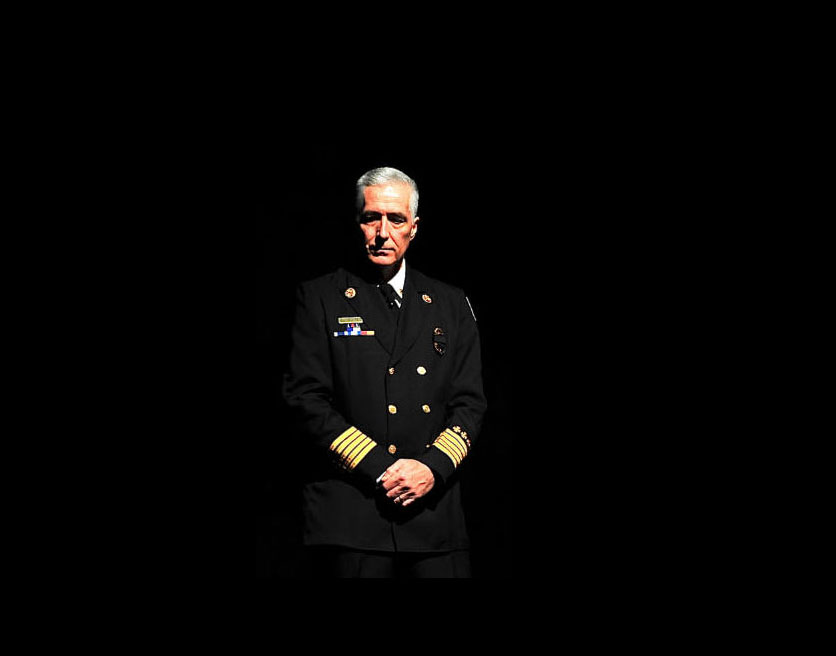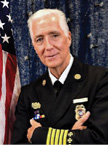
Editor’s Opinion ❘ By BOBBY HALTON

Back in 1950, there was a radio quiz show called “Truth or Consequences” hosted by a guy named Ralph Edwards. Edwards offered to host his show from any town that would be willing to change its name to Truth or Consequences. Hot Spring, New Mexico, agreed, and the deal was struck; Ralph came and did his show as promised and returned every year for the next 50 years; to this day, the town is called Truth or Consequences.
One of the favorite jokes among government people is: “Do you know what the most dangerous sentence in the world is? I am from the government, and I am here to help.” It is a funny line. President Regan used it often, but we all know that not all government activity is bad; in fact, just the opposite is often the case.
In many cases, the government does wonderful work. However, if work had soundtracks, the theme from “Jaws” would be playing from time to time when the folks from Washington got a thought in their heads. It is important to keep in mind that many folks have taught us that although history may not repeat itself, it certainly does rhyme. When some of these plans are hatched, we can almost hear our Moms saying, “Well, bless their hearts.”
Folks call a region in the Southern Plains of the Great Plains “The Dust Bowl.” How it got the name is complicated, but rest assured it has a lot to do with the government. The area was covered in thick natural grasses in the late 1800s/early 1900s; it had been for thousands of years. The area is prone to drought and strong winds; but, over thousands of years, these incredible grasses developed that, well, just seemed to like it that way. Buffalo grazed on them, ranchers raised cattle on them, and there was some farming there to boot.
After the Civil War, the government wanted to encourage folks to move west and populate the land from coast to coast, so the Homestead Act of 1862 was passed, which gave anyone willing to work it 160 acres of land. Later came the Kinkaid Act of 1904 and then the Enlarged Homestead Act of 1909. These government programs caused a massive number of people with little or no farming skills to go west to farm the Great Plains.
Things went well for a while; unusually wet weather helped folks grow wheat and corn, and the scientists of the day and the politicians agreed that the farming caused, well, “climate change.” As the scientists said back then, “Rain follows the plow.” Couple that with a real disruption in European farming because of World War I and queue up the music.
Folks started plowing all the natural grasses to plant more and more wheat, and more and more folks came to strike it rich farming. The government also made it easy to finance new modern mechanized tractors, which could tear out the grasses at an incredible rate. Eventually, the grasses were virtually gone.
Following the war, Europe started farming again, the depression began, and wheat prices fell like a rock. The drought of 1931 was the beginning of 10 years of drought. As the land dried out with the grasses gone, when the winds came, millions of tons of topsoil were lifted into the air and carried as far out as the mid-Atlantic Ocean. The rest, as they say, is history.
Today, the folks in the refrigeration business are very concerned because the government has informed them that the gases they are using are potentially high global warming products (GWP) gases—yes, “climate change” gases. So the folks in the refrigeration business are trying to develop low GWPs. They are also planning to introduce another solution using flammable gases to replace these gases.
Now, the refrigeration folks aren’t crazy; they know flammable gases pose a real problem. They would be literally everywhere, and the potential for disaster is readily apparent. The gases they are proposing are “mildly flammable,” kind of like a “little pregnant,” but it gets better: They are also odorless and colorless. They are classified by ASHRAE as A2L.
Consequences are funny things. Some are intentional, like changing a town’s name, and some are just unintentional. The truth is truth, sometimes only for a while and then with time, until new truths replace it. To quote Seneca, “The time will come when diligent research over long periods will bring to light things which now lie hidden. A single lifetime, even though entirely devoted to the sky, would not be enough for the investigation of so vast a subject …. And so this knowledge will be unfolded only through long successive ages. There will come a time when our descendants will be amazed that we did not know things that are so plain to them …. Many discoveries are reserved for ages still to come, when memory of us will have been effaced.”
We have a lot of very legitimate questions and concerns that we need to have answered regarding replacing the current gases with the proposed flammable gases. We get the need to protect the environment. We also are responsible for protecting human life. There are currently several ongoing research projects. The fire service needs a seat at the table.
It is imperative that no new regulations or standards be proposed or adopted that would put these flammable gases into refrigeration systems until much more research, scenario planning, testing, and rational thought are done. The unintended consequences could be immeasurable, and our descendants would be the ones who might be not only amazed but disappointed. So, before the wind starts blowing and it is time to queue the music, let’s consider the truth and consequences.

MORE BOBBY HALTON

